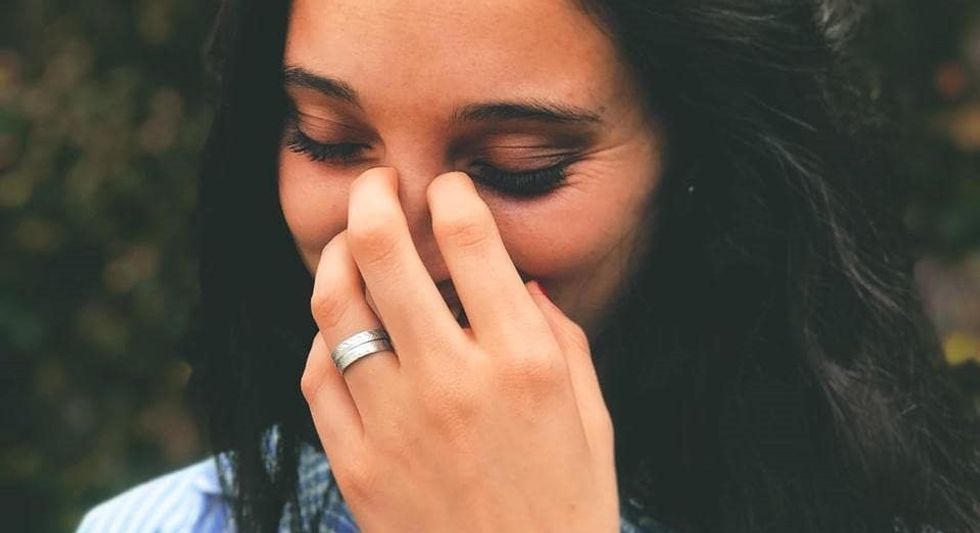I recently read an article about using the right vocabulary when addressing or talking about people from multiple backgrounds. In it, the writer reminisces about the first time she understood the term "mixed" to be an insult. I was shocked because I never felt that it was offensive.
In fact, when people inevitably ask me "What are you?" my answer is always "mixed." Still, it made me think about my own experiences growing up mixed and the moment I realized I was different from the people in my life. Looking back, I'm surprised it took me so long to realize. Of course, I saw the family portraits and I knew, on a basic level, that my reflection was different than my mother's or sister's, but as a kid, "race" wasn't a word I knew. Until someone pointed it out.
I was waiting for my sister after school when one of her friends asked if I was adopted. My sister was quick to tell her "no," but I was fascinated by the idea that other people couldn't believe my sister really was my sister. I'm not adopted, she wasn't lying; but I will admit to asking my mom about it more than once. After it was pointed out, I couldn't stop noticing our differences, and more than anything. I wanted to know why.
I remember in the sixth grade, a boy told me he had met my mom. There had been an open house at the school the night before that my parents hadn't attended. Even after I told him this, he insisted he had seen my mother there. Now, to give you some context, this was a majority white school, so I can't say I'm surprised he assumed the first black woman he saw was my mother. Still, I was quick to cut him off. I asked, "Did she look like me?" He nodded, so I continued, "Then it wasn't my mom."
Despite my darker complexion and tight curls, I didn't admit to the possibility of blackness until I was a senior in high school. I use the word "admit" kind of loosely here. It wasn't as if my ethnicity was a dark secret I tried to hide, but it was something I tried not to think about, something I will admit to actively denying at a few points. If you could see me, the idea of me pretending I'm anything other than multiracial is laughable, but until I was 16, I thought of myself as white.
It seemed to me growing up that blackness was something to be avoided. I would ask my mom often where I got my looks from. She would spout out something about my biological father's Native American heritage, which, no offense to my mother, was a load of crap. Granted, yes, there is a little of that at play, but even as a child I knew that wasn't a complete answer. In any sense, it was simpler for me to identify with my family instead of confronting my differences.
People tended to make assumptions and speculated about it, but few people actually asked me, which made questions like "What are you?" that much more disarming. I was embarrassed by it. From the reminder that strangers, literal strangers on the street, could look at me and identify me as "other." As if I am anything other than just a human girl, like an alien or an exotic bird.
I still get questions like that, and I'm still not sure how to answer them.
I'm not offended or uncomfortable when people call me black; honestly, it's a weight off me because at least I don't have to explain myself, but I am hesitant to describe myself that way. Not because I'm worried it may be inaccurate—I'll deal with that if I ever discover that's the case—but because, more often than not, my blackness feels less than legitimate. It feels like a label placed on me by those who see the world in only black and white, and I'm clearly not white.
There are times when I still feel like the odd one out, especially with my family. I look up and see I'm surrounded by white faces, and then there's me.
Ethnically ambiguous.
In that regard, getting asked that question all the time has had a welcome effect: I care a little less. I'm a little more comfortable admitting that I don't know.

















